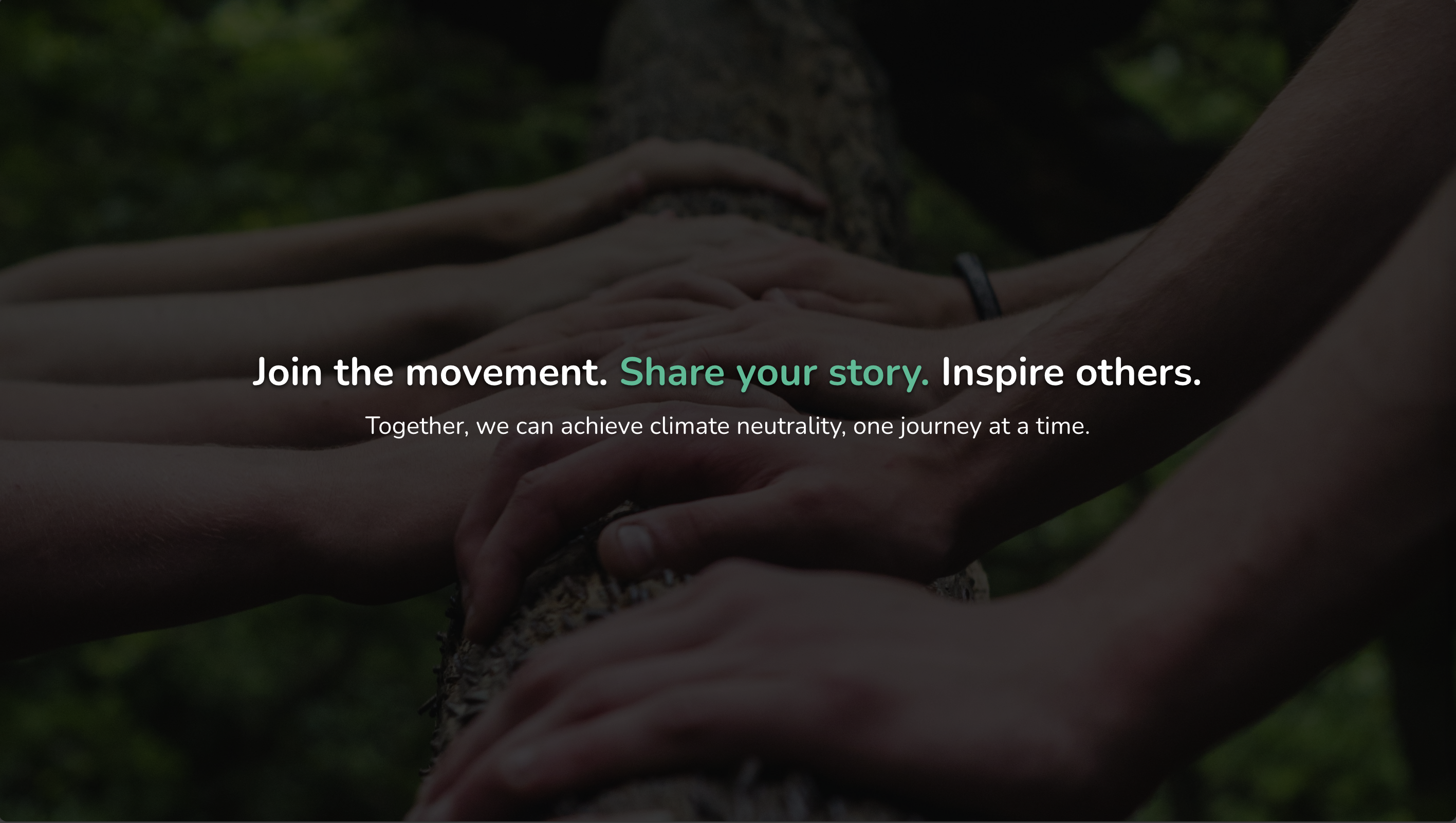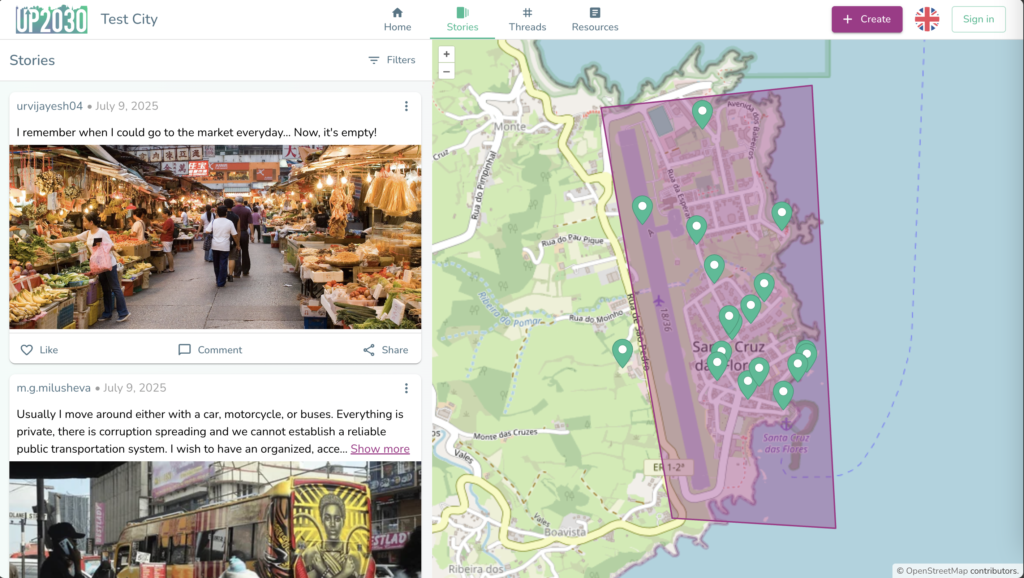

Digital tools alone don’t make cities more climate-neutral - people do. But inspiring, informing, and involving people in climate action requires more than facts and figures. It requires stories.
In the UP2030 project, the Neutrality Story Maps (NSM) platform is designed not just as a technical tool, but as a participatory platform for change. By combining digital storytelling with geospatial mapping, NSM helps cities raise awareness, promote inclusive participation, and empower citizens to shape climate-resilient urban futures from the ground up.
While our project partner CERTH has led the technical development of the platform itself, NSM is deeply rooted in a co-creative process led by the VUB that centres citizens and city representatives. This blog explores how NSM fosters social learning, inspires behaviour change, and supports cities in making climate neutrality a shared journey.
Digital Storytelling as a Catalyst for Climate-Conscious Living
Storytelling is one of the oldest ways humans make sense of the world. In NSM, personal stories become catalysts for awareness and action. By allowing citizens to share how climate change affects their daily lives, or what changes they’re already making, NSM humanises complex issues and connects them to local realities.
But beyond awareness, storytelling also fuels social learning. When people read or watch relatable stories, they reflect on their own behaviours and values. This kind of peer-to-peer learning, what one city representative called “citizen-to-citizen storytelling”, helps expand climate knowledge beyond data-driven approaches, encouraging more people to adopt pro-environmental habits.
Whether it’s a citizen sharing their challenging daily work commute, a young person sharing a photo of a green street they’d like to see, or a participant reflecting on a lifestyle change, these stories act as seeds for change.
Giving Voice, Gaining Trust
NSM gives citizens more than a voice; it offers a digital space to act, reflect, and contribute. Instead of being passive recipients of information, citizens can now shape narratives, flag issues, and influence climate action through their own lived experience.
Importantly, NSM also addresses past shortcomings in public engagement. As several cities highlighted, meaningful participation must be met with visible responsiveness from municipalities. When citizens see their input considered and valued, trust deepens, and participation grows.
For many cities, NSM can become a channel for more inclusive and participatory urban governance. By inviting stories from students, older residents, or underrepresented groups for instance, the platform challenges traditional one-way communication and opens space for bottom-up dialogue.

Local Voices, Fairer Cities
Climate change is experienced locally, with impacts felt unevenly across urban areas, whether through flooding, heat stress, or unequal access to green spaces. By geotagging citizen stories on a digital map, NSM enables cities to see and listen to place-based experiences, particularly from communities that are often overlooked.
NSM captures the contextual, emotional, and experiential dimensions of climate adaptation, documenting what it means to live on a busy street during a heatwave or to witness the transformation of public spaces through greening initiatives.
By facilitating the sharing of real-life experiences, NSM empowers cities to co-plan climate adaptation strategies that are responsive to the lived realities and needs of their communities.
Tailoring Tools to Local Realities
NSM is being co-designed with each of the ten UP2030 pilot cities, ensuring it reflects local visions, priorities and capacities. This adaptability is key to building local ownership of the platform.
Some cities will use NSM to crowdsource stories from citizens, with a focus on vulnerable groups. Others may focus on curating digital narratives or developing scrollytelling homepages to communicate the risks they’re facing and the local initiatives they’ve put in place to address them, amplifying their reach and impact.
Ultimately, the platform helps cities build internal capacity for citizen engagement, reducing reliance on external consultants and empowering local actors.
Every Story Counts
The journey of the NSM is still unfolding. As cities finalize their digital stories and we refine the platform ahead of its public launch, new insights, behaviours, and connections will continue to emerge.
Each pilot city will have its own operational NSM by the end of the UP2030 project and determine how to use it in their future climate neutrality strategies. The platform is not a static tool, it is a living system that grows with its users, adapting to local needs and evolving with community input.
NSM is more than a map. It’s a platform that documents the lived experiences of communities affected by climate change and provides actionable insights to support more inclusive and sustainable futures. By raising awareness, promoting social learning and deepening citizen engagement, NSM amplifies local voices and fosters behavioural change, deepens trust, and unlocks the collective imagination needed to achieve climate neutrality.
As we face a critical decade for climate action, tools like NSM remind us that transitions are not only technical, but they are also social, emotional, and narrative. And every story counts.
Stay tuned to the UP2030 website for updates on the platform launch.
Contact
imec-SMIT VUB, email: Milutin.djuraskovic@vub.be


